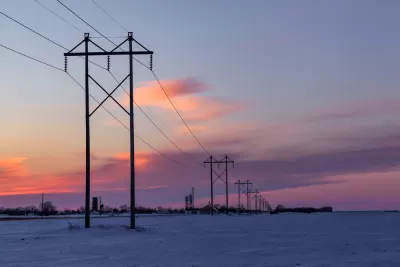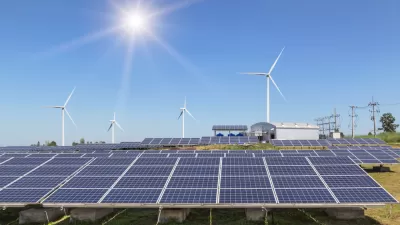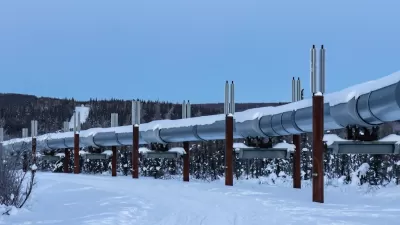If signed by the governor, a new state law would require all utilities in the state to switch to renewable energy within two decades.

In a party-line vote, the Minnesota state Senate approved a law that requires the state’s power utilities to switch to 100 percent clean power by 2040. In a piece originally published by Grist and republished in Route Fifty, Zoya Teirstein describes the legislation, which revives a failed 2021 proposal rejected by the then-Republican state senate.
According to Teirstein, “The legislation establishes two new mandates for electric utilities in the state: a renewable electricity standard and a carbon-free energy standard.” A prior goal of reaching 25 percent renewable energy by 2025 was met eight years early. Acceptable sources of energy include solar, wind, hydropower, nuclear, hydrogen, and biomass (burning wood or trash). “The bill contains provisions that will help streamline the permitting process for new energy projects in the state, set minimum wage requirements for workers hired by the state’s utilities to build large-scale projects, and prevent power from waste incineration plants located in low-income, majority non-white communities from counting toward the 2040 target.”
Despite warnings from Republican lawmakers that the new rule would make the state’s energy grid less reliable and more expensive, Teirstein points out that “Multiple analyses of existing state-level clean energy standards show the mandates have actually improved grid reliability and reduced costs for consumers.”
FULL STORY: Minnesota to Require 100% Carbon-free Electricity by 2040

Planetizen Federal Action Tracker
A weekly monitor of how Trump’s orders and actions are impacting planners and planning in America.

Maui's Vacation Rental Debate Turns Ugly
Verbal attacks, misinformation campaigns and fistfights plague a high-stakes debate to convert thousands of vacation rentals into long-term housing.

San Francisco Suspends Traffic Calming Amidst Record Deaths
Citing “a challenging fiscal landscape,” the city will cease the program on the heels of 42 traffic deaths, including 24 pedestrians.

Amtrak Rolls Out New Orleans to Alabama “Mardi Gras” Train
The new service will operate morning and evening departures between Mobile and New Orleans.

The Subversive Car-Free Guide to Trump's Great American Road Trip
Car-free ways to access Chicagoland’s best tourist attractions.

San Antonio and Austin are Fusing Into one Massive Megaregion
The region spanning the two central Texas cities is growing fast, posing challenges for local infrastructure and water supplies.
Urban Design for Planners 1: Software Tools
This six-course series explores essential urban design concepts using open source software and equips planners with the tools they need to participate fully in the urban design process.
Planning for Universal Design
Learn the tools for implementing Universal Design in planning regulations.
Heyer Gruel & Associates PA
JM Goldson LLC
Custer County Colorado
City of Camden Redevelopment Agency
City of Astoria
Transportation Research & Education Center (TREC) at Portland State University
Jefferson Parish Government
Camden Redevelopment Agency
City of Claremont





























